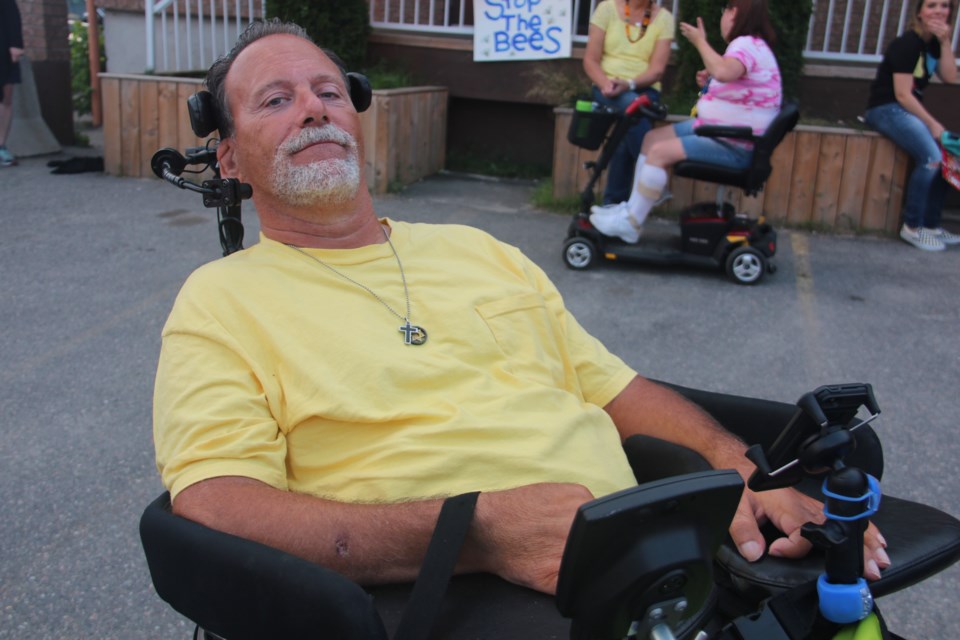Traditionally, Take Back the Night marches focus on the right of women to be out alone at night without being accosted.
But this year, organizers of Sudbury's march expanded its aim to demand that right for everyone, especially vulnerable minorities, including the disabled, the LGBT community and racial minorities.
Plenty of representatives from the above-mentioned communities were among the hundreds taking part in the Sept. 21 march.
That included Rob Decosse, who uses a wheelchair. He said he was primarily at the event because he's a supporter of women's rights.
But Decosse also shared his thoughts on the safety of disabled people on Sudbury's streets. While he said he personally doesn't feel unsafe while out alone, he knows of other people in wheelchairs who do.
“Because they are powerless, sometimes being downtown is not always a safe place at night,” he said.
Starr Daniels, who identifies as a gender queer woman, said she really appreciates the changed focus of Take Back the Night. She said she often feels unsafe in Sudbury.
“You'd be amazed at the comments — there's a lot of negative comments,” Daniels said. “People say a lot of stupid things. I was assaulted because I was wearing a pink shirt.
“It's nice to see the community coming together to take back something that is taken from us.”
Among those attending the event was none other than Canadian filmmaker Alanis Obomsawin, who's known for her many films on aboriginal issues.
She was in town screening her film “Our People Will Be Healed” at Cinéfest Sudbury International Film Festival Thursday, and when she heard Sudbury's Take Back the Night march was happening, she wanted to attend.
“It's very important,” she said.
“It has to do with women who are badly treated and killed and missing. There are young boys who go through the same thing. And there's people who have physical problems often are raped also because they are so vulnerable.
“I just think it's terrible and a concern, and I wanted to take part.”
Take Back the Night organizer Laurel O'Gorman said that statistically, violence can happen to anyone, but some people are more likely to experience violence.
“One thing we don't talk a lot about in feminist organizing is that indigenous women are much more likely to experience violence than white women or people of colour are more likely to experience violence,” she said.
The same thing is true of queer people, trans people and people with disabilities, O'Gorman said.
“We're trying to keep all of these voices at the forefront while trying to end all violence, because we can't end violence against people unless we focus on why people are experiencing it,” she said.
